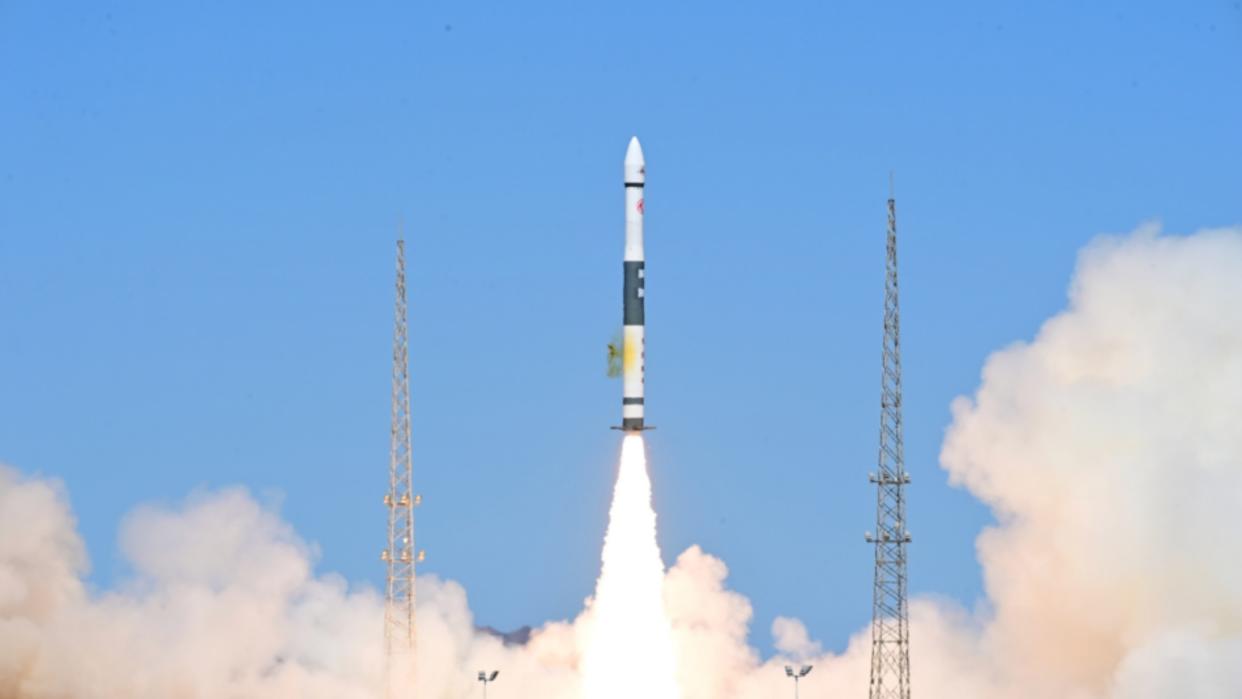China launches 4 commercial weather satellites to orbit (video)

A Chinese solid rocket launched a new batch of commercial satellites from the Gobi Desert on Wednesday (July 19).
A Kuaizhou 1A rocket lifted off from the Jiuquan Satellite Launch Center in northwest China on Wednesday at 11:20 p.m. EDT (0320 GMT, or 11:20 a.m. Beijing Time on July 20).
Aboard were four Tianmu 1 satellites, designated numbers 07-10, for collecting weather data. The satellites and rocket upper stage were later detected by space domain awareness tracking in orbits with an altitude of roughly 326 miles (524 kilometers) and an inclination of 97.4 degrees.
Related: The latest news about China's space program

The Tianmu 1 constellation is intended to provide global commercial meteorological data services, including numerical weather forecasting, typhoon monitoring and forecasting and climate change research. The satellites were developed by a subsidiary of the state-run China Aerospace Science and Industry Corporation, or CASIC.
The mission follows a similar launch in March of this year, which saw the Tianmu 1 (03-06) satellites reach orbit.
CelesTrak has GP data for 5 objects from the launch (2023-101) of 4 Tianmu-1 weather satellites atop a Kuaizhou-1A rocket from Jiuquan Satellite Launch Center on Jul 20 at 0320 UTC: https://t.co/oGCJUjQxIx. Data for the launch can be found at: https://t.co/apn48o2DUW. pic.twitter.com/UrXFEU318ZJuly 20, 2023
RELATED STORIES:
— China wants to launch over 200 spacecraft in 2023
— Chinese launch company tests vertical rocket landings with jet-powered prototype (video)
— China launches 3 astronauts to Tiangong space station on Shenzhou 16 spacecraft (video)
Tianmu satellites detect changes to signals transmitted by navigation satellites such as GPS and Beidou as they pass through Earth's atmosphere.
"Some navigation signals are transmitted through different atmospheric layers or different media, and there will be attenuation and differences between these signals. We can obtain valuable information from the medium it penetrates, from its characteristics and density, or other features," Gao Wei, strategic operations director of the Tianmu 1 constellation, told CCTV+.
"By 2025, our Tianmu 1 system will be basically completed and will provide stable service for various user categories. At the same time, through the integrated construction and operation of the constellation, we can better serve the national strategy and improve the national economy and people's livelihoods," Gao said.
The Kuaizhou 1A for the launch was provided by Expace, a rocket-making company spun off from CASIC. It can carry a payload of 440 pounds (200 kilograms) to a 345-mile-high (700 km) sun-synchronous orbit.
The Kuaizhou 1A has now flown 21 times and registered 19 successful launches. The new launch was China's 28th orbital mission of 2023; the country has plans to launch more than 200 spacecraft this year.

